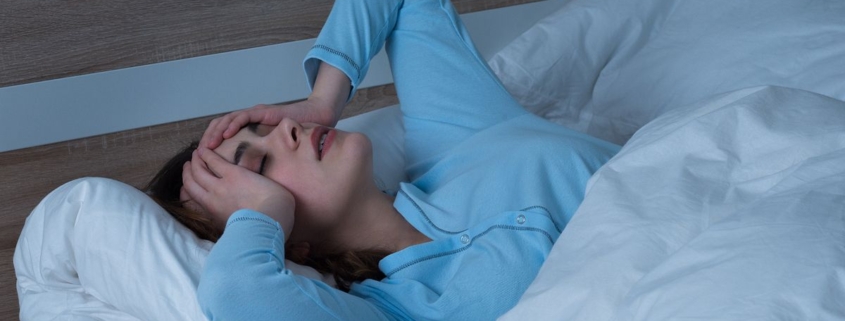Sleep Deprivation: Symptoms, Causes, Treatments
Sleep deprivation is a very common issue in modern society, leading to numerous health issues. It occurs when a person experiences interruption in sleep patterns by keeping awake because of numerous reasons. Children, adults, and senior citizens are all susceptible to the effects of sleep deprivation.
Sleep loss significantly has effects on your physical wellness, mental health, memory, feeling, and many others. Occasional modifications in sleep patterns are often not a subject of concern. However, prolonged inadequacy of sleep can lead to low productivity, not enough focus, extreme daytime drowsiness, obesity, emotional complexities, bad work performance, and a lowered perception of the quality of life.

Causes Of Sleep Deprivation
Medical Conditions – Medical Conditions such as stomach ache, upper respiratory illness, as well as pregnancy. Some other medical issues which could make it difficult to sleep and are made worse by sleep deprivation include irritability, depression, paranoia, and also anxiety.
Sleep Disorders – Issues, such as periodic limb movement condition, disrupt the sleep because it brings about jerking movements of the legs while in sleep.
Uncomfortable Environment – Although overlooked often, this could also impact your relaxing sleep. Resting in rooms which are very hot or very cold, a lot of light and noise within the room could wake you up from the sound sleep.
Pets – Having pets on the bed could be a cause of disrupted sleep.
Alcohol – Although alcohol may help you to fall sleep quicker, it awakes you up the moment the sedative action of alcohol has expired. This influences the sleep cycle or movement of stages of sleep.
Medications & Supplements – A few medications, such as steroids and beta-blockers, are recognized to keep you awake in the evening.
Exhaustion – One more common reason behind sleep deprivation. Relaxing and enabling the mind to rest is essential when the body is very tired following a stressful day.
Hot flashes – specifically in women in the menopause.
Symptoms Of Sleep Deprivation

- Mood and behaviour changes, that might consist of anxiety, and depression
- Issues with performance such as planning, organization, as well as judgment
- Psychiatric symptoms including fear, disorientation, as well as hallucinations
- Trouble focusing. This could lead to reduced reaction times, reduced work/school performance, or greater risk of vehicle accidents
- Physical effects, like gastrointestinal symptoms, including upset stomach or diarrhea and generalized pain, discomfort and aches.
- Any disturbance on the natural flow of the sleep cycle could affect hormones like growth hormone and thyroid hormone leading to infertility
- Greater risk for stroke, heart problems, and asthma attack
- Reduced capability to combat infections
- A little reduction in the body temperature, because of cold
Treatments for Sleep Deprivation

The main treatment of sleep deprivation would be to expand total sleep time. Managing the cause of sleep deprivation is often the remedy to the problem. In case a sleep disorder is interrupting sleep, the issue should be addressed so as to boost sleep period and quality. Insufficient sleep hygiene or not enough sleep is usually a cause which should be resolved.
While sleeping pills or sleep aids could be helpful for short-term use, they’re not really a cure and don’t target the underlying causes of the sleep problem – and with time might even make your symptoms even worse. Rather, you can find a number of lifestyle and behavioral modifications you could do to cope with sleep deprivation and have your sleep schedule back to normal.
- Relaxed your anxious mind in the evening.
- Postpone being worried.
- Deal with stress.
- Have frequent exercise.
- Sustain a regular sleep schedule.
- Observe what you drink and eat.
- Boost your sleep environment.
- Get caregiving support.
- Find professional help when you suspect a medical cause for your sleep deprivation.




Leave a Reply
Want to join the discussion?Feel free to contribute!